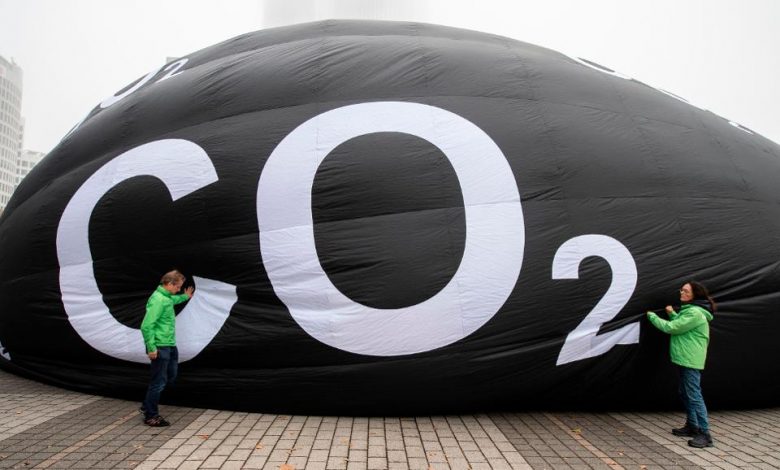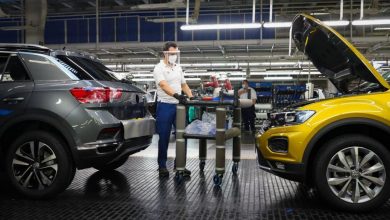
Coronavirus Spooks European Auto Industry And May Spur Revision Of EU CO2 Rules
European Union (EU) CO2 rules forcing sedan and SUV makers to in effect “go electric” by 2030 was always going to end badly for the automotive industry and consumers, but the coronavirus crisis has suddenly brought this to a head.
As the European automotive crisis deepens, with plants closing temporarily and demand likely to fall by up to 20% this year, the industry needs the EU to step in, concede its rules are going to cause irreparable harm to the business and its huge, highly skilled workforce, and either dilute the demands, or delay them for a while.
Instead, the EU is currently working on actually making the rules even more stringent. The industry seems too fearful of offending politicians to plead for some protection against the malign impact of the rules, which demand the equivalent of an average 92 miles per U.S. gallon by 2030.
The European Automobile Manufacturers Association, known by its French acronym ACEA, was asked if it planned to seek protection from the impact of the rules because of the crisis. In response, ACEA issued a statement seeking national government and EU financial support for the industry, which supports about 14 million jobs, unspecified measures to avoid undermining the industry, and a general stimulus to Europe’s economy. The fuel economy rules didn’t even get a mention.
The EU Carbon Dioxide (CO2) regime insists carmakers raise average fuel efficiency from the equivalent of about 57 miles per U.S. gallon in 2020/2021, from 41.9 mpg in 2015, rising again by 15% in 2025, and hitting 92 mpg by 2030. That compares with current U.S. draft legislation calling for a 40.5 mpg fleet average by 2030.

Small cars like the Volkswagen Polo will be too expensive to produce by 2030. (Photo by Sjoerd van … [+]
GETTY IMAGES
According to a report from investment researcher Jefferies last year, if the auto industry makes no progress in curbing CO2 from 2018 towards meeting the EU’s 2020/21 regulations, it faces fines totalling the equivalent of $36 billion, twice its estimated profits, and could be forced to raise prices up to 10%. Latest data suggests in 2019, the industry went backwards not forwards in production of CO2 thanks to the popularity of SUVs and the demise of diesel.
The industry is also spending vast sums investing in research and development of electric cars, and at the same time withdrawing big profit margin gas guzzling top of the range sedans and SUVs to help beat fuel economy fines, while pushing forward low or non-existent profit margin small cars.
Norddeutsche Landesbank Girozentrale analyst Frank Schwope said it’s time for these rules to be looked at again if the industry is to be rescued from this crisis.
“The coronavirus crisis poses unprecedented problems for automobile manufacturers and suppliers. Production and sales are largely paralyzed for at least 4 weeks. The European’s CO2 targets or the fines (manufacturers) face may be softened or postponed, so that companies are not at risk of financial burdens,” Schwope said.
Guido Nelissen, Economic Advisor with the IndustriAll-European Trade Union also called for some understanding from the EU.
“Sales in Europe are already down about 8% (in the first two months of the year) and there will be a dramatic drop in sales this year, making it impossible to introduce electric and hybrid cars. I think we have to ask (the EU Commission) for a delay for, say, one year. It makes no sense to levy heavy fines in tough economic times,” Brussels-based Nelissen said in a telephone interview.
That’s anathema to environmental lobby group, Brussels-based Transport & Environment (T&E), which doesn’t see a case for easing the CO2 rules.

EU Commissioner for Environment, Oceans and Fisheries Virginijus Sinkevicius talking about the … [+]
GETTY IMAGES
“While the overall economic recovery is crucial, we shouldn’t let some opportunistic carmakers use the crisis to shamelessly ask to roll back the EU CO2 standards – VW and BMW already rightly acknowledged this is not needed and deserve praise for this,” Julia Poliscanova, clean vehicles director with T&E European, said.
But VW has also said it will be impossibly expensive for it to make cheap cars like the Up and Polo by 2030. This is likely to be an industry-wide position, and will eliminate the opportunity for average wage earners across Europe to afford new, cheap cars. They will be forced on to public transport or the second-hand market, and won’t be happy.
“It is too early to judge the impacts of the coronavirus on the car industry, but selling less cars won’t impact the compliance. What matters is what type of car you sell. Electric cars sales reached a record high in early 2020 and will continue to be driven by the fleets market,” she said.
According to Berlin-based auto analyst Matt Schmidt (www.schmidtmatthias.de), before the coronavirus struck, battery-only electric car sales in Western Europe will more than double in 2020 to around 700,000 and reach close to 1 million by the end of 2021. The Western Europe market total is likely to be close to 13 million in 2020.
“And new car emissions actually dropped significantly during the last recession as people switched to buying smaller, cheaper cars that help achieve the car CO2 standards just as much,” Poliscanova said.
EU governments are likely to back T&E’s position. The so-called Green Deal has member state the backing for CO2 neutrality by 2050, minus Poland. But if Europe’s flagship automotive industry looks like being seriously undermined by self-inflicted wounds, governments may well consider some delay or watering down of the regulations.
The German Association of the Automotive Industry, VDA, spokesman Ralf Diemer, isn’t happy with the planned tightening of CO2 requirements, but thinks it’s too early to start talking about implementing that, or negotiating easing the current rules.
“It’s too early because we don’t know how this (coronavirus) crisis will play out. Will rules be eased? So far no one knows how long the crisis will last. It’s catastrophic because the market is slowing down and nobody wants to buy a car at the moment. When we have more knowledge we can start to discuss these targets,” Diemer said.
But if there was clear evidence lasting damage was being done to the industry, things might change.

Red sign hanging at the glass door of a shop saying “Closed due to coronavirus”.
GETTY
“If some manufacturers are being badly damaged and thousands of jobs were at stake, then of course there would be a debate on CO2 targets. But now is the wrong time,” he said.
The German auto industry currently has 830,000 employees, according to the Center for Automotive Research. Last year, German carmakers built 4.7 million sedans and SUVs, 9% down on the previous year, and the lowest since 1997. 3.5 million were exported.
IndustriAll-European Trade Union’s Nelissen said the coronavirus emergency comes at an inopportune time for the automotive industry, already in the throes of an existential threatening upheaval.
“There are plenty of companies in the supply chain that will go bust and it depends on what governments can do to keep afloat ailing companies. There are too many things happening at the same time, with electrification, the move to connected cars, autonomous cars, the business model is changing from producing vehicles to selling mobility services and this virus on top will make it very hard for the industry to cope,” Nelissen said.
Font: Forbes





